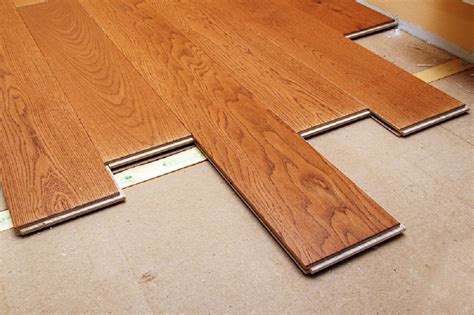
What Are Floating Floors?
Floating floors are a type of flooring installation method that involves laying individual planks or tiles over an existing subfloor without the need for adhesive or nails. The planks or tiles are attached to each other, creating a “floating” surface that can expand and contract with temperature and humidity changes.
Floating Floor Examples
Floating floors come in various materials, including laminate, luxury vinyl, engineered hardwood, and cork. Each material offers unique benefits and aesthetics to suit different preferences and requirements.
Floating Floor Cost
One of the advantages of floating floors is their affordability. Compared to traditional flooring options, such as solid hardwood or tile, floating floors tend to be more budget-friendly. However, the cost can vary depending on the material, brand, and installation complexity.
Maintenance and Repair
Floating floors are relatively easy to maintain. Regular sweeping or vacuuming, along with occasional damp mopping, is usually sufficient to keep them clean. However, it’s important to avoid excessive moisture, as it can damage the flooring. In terms of repair, individual planks or tiles can be replaced if they become damaged or worn over time.
Design
Floating floors offer a wide range of design options. Whether you prefer a rustic wood look, a sleek modern style, or a natural stone appearance, there are floating floor options available to match your desired aesthetic. Additionally, they can be installed in various patterns, such as herringbone or chevron, to add visual interest to your space.
Floating Floor Installation
Floating floor installation is typically straightforward and can be done as a DIY project. The planks or tiles are designed to interlock, eliminating the need for adhesive or nails. However, it’s important to follow the manufacturer’s instructions and ensure that the subfloor is clean, level, and properly prepared before installation.
Top Brands of Floating Floors
Several reputable brands offer high-quality floating floors, including Pergo, Armstrong, Shaw, Mohawk, and Mannington. These brands provide a wide range of options in terms of materials, styles, and price points, allowing you to find the perfect floating floor for your needs.
Comfort and Convenience
Floating floors often provide a comfortable underfoot feel due to their construction and the use of underlayment. They can also help reduce noise transmission, making them a popular choice for multi-story homes or apartments. Additionally, the floating installation method allows for easier removal and replacement if needed.
Is a Floating Floor Right for You?
Determining if a floating floor is suitable for your home depends on several factors. Consider your budget, lifestyle, and specific needs. If you’re looking for an affordable, versatile, and relatively easy-to-install flooring option, a floating floor might be the ideal choice.
FAQs
1. Can a floating floor be installed over existing flooring?
In most cases, yes. Floating floors can be installed over existing hard surfaces such as vinyl, tile, or hardwood, as long as the subfloor is in good condition. However, it’s crucial to follow the manufacturer’s recommendations and ensure proper preparation of the existing floor before installation.
2. Are floating floors suitable for bathrooms or other high-moisture areas?
While some floating floors are designed to be water-resistant, they are not inherently waterproof. It’s important to choose a floating floor specifically engineered for high-moisture areas, such as luxury vinyl or certain types of laminate.
Additionally, proper sealing of the edges and seams is crucial to prevent water infiltration.
3. Can floating floors be refinished?
Most floating floors have a wear layer that cannot be sanded or refinished like traditional hardwood. However, some engineered hardwood floating floors with a thicker top layer may be refinished once or twice, depending on the thickness. It’s best to consult the manufacturer’s guidelines to determine if refinishing is possible for your specific floating floor.
Conclusion
Floating floors offer numerous advantages, including affordability, easy installation, and a wide range of design options. However, they may not be suitable for every situation. By considering the pros and cons, along with your specific needs and preferences, you can make an informed decision on whether a floating floor is the right choice for your home. Remember to research reputable brands and consult with flooring professionals for further guidance.






